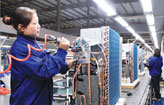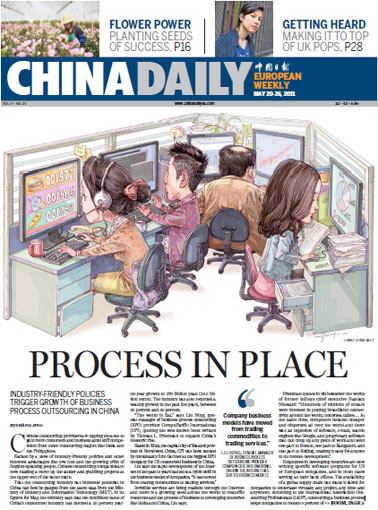Society
Food safety drive targets supervision
Updated: 2011-05-24 07:04
By Zhang Yan (China Daily)
Negligence and corruption to blame for many safety scares
BEIJING - Authorities are targeting corruption and negligence among officials involved in food safety in a bid to curb a growing number of incidents concerning contaminated food.
The Supreme People's Procuratorate (SPP), the top prosecuting agency, will investigate and crack down on crimes, including bribery, negligence and favoritism in the food industry, Qiu Xueqiang, SPP vice-president, said at a news briefing on Monday.
Between September and April, 220 suspects accused of making and selling food unfit for human consumption had been arrested, with 113 prosecutions in 65 cases, according to SPP statistics.
He said crimes related to food safety involved people and officials from the agriculture and health sectors, inspectors as well as food and drug administration departments, with bribery and corruption evident in an increasing number of cases.
Many of the crimes spanned different regions, which made it more difficult to collect evidence, Wan said.
Negligence and dereliction of duty were a common theme. Prosecutors across the country have investigated 37 such cases since January, with 57 government employees involved, Wan said.
In one of the cases, Jiyuan Shuanghui Food Co Ltd, a supplier to the country's largest meat processor, Henan-based Shuanghui Group, purchased pigs that had been given the illegal additive, Clenbuterol. The chemical helps produce lean meat, but is harmful to humans.
The presence of the tainted pork in the market was partially attributed to negligence by local quarantine officials, who had never conducted tests for the chemical.
Of the 39 people investigated in the Shuanghui case, 22 were government officials charged with negligence.
Following the Clenbuterol exposure, a number of incidents, including steamed buns dyed with chemicals in Shanghai, rotten pre-packaged roast duck sold in Beijing and watermelons contaminated with growth accelerators in Jiangsu and Sichuan provinces, have been reported, arousing widespread public concern.
The government has launched a nationwide campaign to curb the rampant use of additives in food.
"We will pay attention ... to food production, processing and transport, as well as dairy products, cooking oil and food additives," Qiu said.
Government employees who cover up contaminated food will be severely punished, he said.
In Shanghai, Mayor Han Zheng said on Monday the municipal government will take the "toughest measures" to crack down on illegal food production and ensure food safety.
The city will also establish a blacklist to expose and punish enterprises that defy food safety rules, he added.
Xu Yongjun, a law professor at Peking University, told China Daily that regulatory loopholes are the fundamental problem.
"Food safety falls into the realms of many departments, such as agriculture, health, quarantine, as well as food and drug administration, but each department works independently," he said.
A single department that can coordinate the campaign to ensure food safety must be set up, he said.
According to the amended criminal law, the production and sale of food harmful to human health carries a prison term of 3 to 7 years.
In cases that result in deaths or mass poisoning, suspects could be sentenced to life.
Li Guifang, deputy head of the criminal defense department of the All China Lawyers Association, said harsher punishment would serve as a deterrent to potential criminals.
E-paper

Thawing out
After a deep freeze in sales during the recession, China’s air conditioner makers are bouncing back
Preview of the coming issue
Cool Iron lady
Of good and evil
Specials

Memory lanes
Shanghai’s historic ALLEYS not just unique architecture but a way of life

Great expectations
Hong Kong-born singer songwriter rises to the top of the UK pops.

A diplomat of character
Belgian envoy draws on personal fascination to help build China ties.




